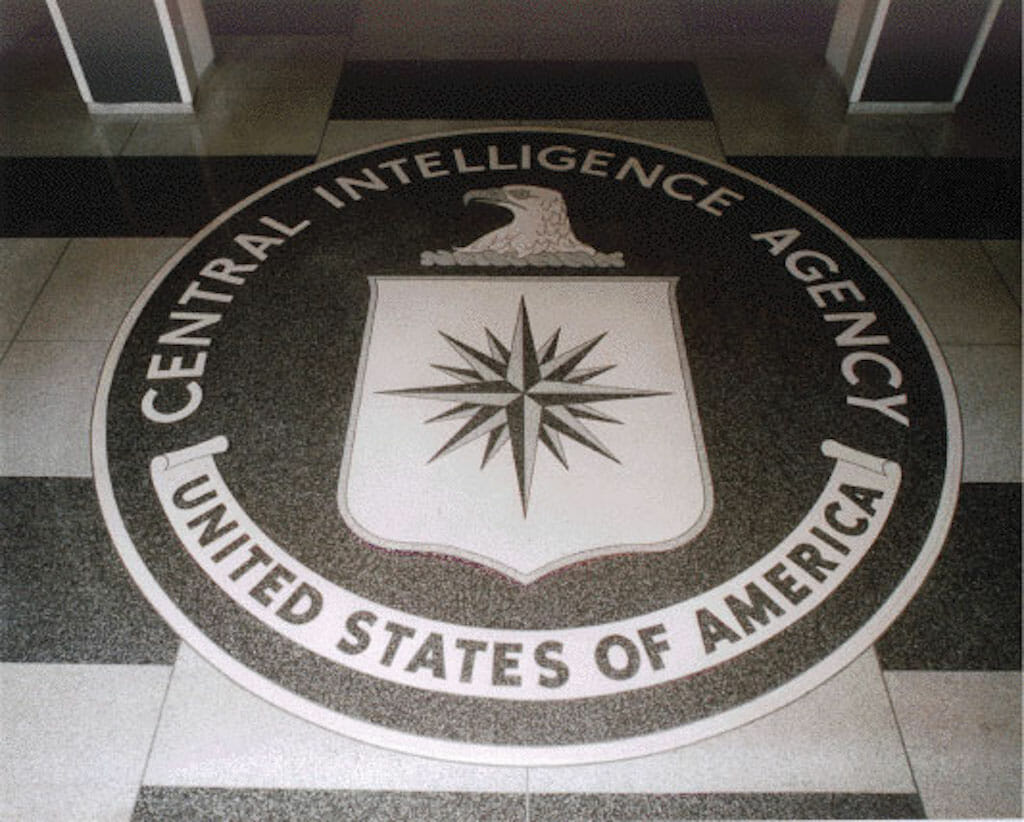We Should Not Reward the Authors of Torture
Violations of U.S. and international law cannot be rationalized or ignored in considering Gina Haspel's nomination to be the new CIA director. The CIA seal in the lobby of agency headquarters in Langley, Va. (Global Panorama / CC BY-SA 2.0)
The CIA seal in the lobby of agency headquarters in Langley, Va. (Global Panorama / CC BY-SA 2.0)
President Trump vowed during his campaign to bring back torture as a weapon against terrorism. Now the Senate must stop him from installing as CIA director a woman whose resume includes overseeing a disgraceful episode of torture—and then joining in a cowardly effort to cover it up.
This should not be a close call. In other respects, Trump’s nominee, CIA veteran Gina Haspel, seems to have been an exemplary public servant. But that’s like saying that except for one unfortunate incident, Mrs. Lincoln had a lovely night at the theater. The torture of suspected terrorists was a singular transgression of this nation’s values—as well as a violation of U.S. and international law—and it simply cannot be rationalized or ignored.
This obscene chapter in our history took place during the George W. Bush administration. For a time, Haspel was in charge of one of the CIA’s secret overseas prisons—a “black site” located in Thailand. She is credibly reported to have been the boss there when a detainee named Abd al-Rahim al-Nashiri, the alleged planner of the deadly attack against the USS Cole, was subjected three times to the torture known as waterboarding.
You will recall that the Bush administration used the Orwellian term “enhanced interrogation techniques,” perhaps in an attempt to convince those implementing the policy that what they were doing was legally and morally acceptable. But the euphemism is a despicable lie. Waterboarding is torture, and it is clearly against the law.
After World War II, at the Tokyo war crimes trials, a number of Japanese soldiers found guilty of waterboarding prisoners of war were hanged or given long prison sentences. U.S. victims testified to the gruesome horror of these episodes of simulated drowning. No one questioned the fact that waterboarding was a particularly sadistic form of torture. No one should question it now.
The torture of al-Nashiri was videotaped. Acting on orders from her CIA supervisor, Haspel wrote a cable ordering the destruction of those tapes—even though she and the supervisor had been told to preserve them as evidence in an ongoing investigation. The videotapes were indeed destroyed.
A stopped clock is right twice a day; Sen. Rand Paul, R-Ky., somewhat less often. But Paul is a hero for raising a racket about the torture issue and announcing his opposition to Haspel’s nomination.
“What is known is that Haspel participated in a program that was antithetical to the ideals of this country. She destroyed evidence in defiance of our ideals,” Paul wrote in a Politico op-ed. “I simply do not believe she should hold the post to which she has been nominated.”
Initial reports that Haspel oversaw even more torture appear to have been wrong, and her supporters will try to make the debate about that error—thus diverting attention from the central issue. But the al-Nashiri torture has not been disputed, and Haspel clearly ordered destruction of the evidence. That is reason enough for the Senate to vote no.
It is unclear what other mistreatment Haspel may have overseen in Thailand—depriving detainees of sleep, subjecting them to extreme temperatures, forcing them to remain in painful positions for extended periods of time. Some of these “techniques” probably also qualify as torture, in my view. About waterboarding, however, there is not really a question.
Given the overall chaos of the Trump administration and the president’s erratic conduct of foreign policy, it would be good to have an experienced, internally respected CIA veteran at the helm of the agency. And it would be a milestone for the CIA to be run, for the first time, by a woman. But these pluses are outweighed by one big minus: torture.
It can be argued that Haspel was just following orders, but she should have known that those orders were illegal. And if she and others who played a role in waterboarding did nothing wrong, then why did they destroy the videotapes of those supposedly legitimate “enhanced interrogation” sessions? In most U.S. courts, such action would be seen as an indication of “consciousness of guilt.”
Despite Trump’s bluster, his outgoing CIA director, Mike Pompeo, flatly ruled out any return to torture during his confirmation hearings. It is understandable that agency officials would want to put the whole sordid affair behind them. We may never be able to hold the authors of torture accountable, but we can, and should, insist that they not be rewarded.
I hope Haspel is at peace with the choices she has made. The Senate’s choice should be to say no.
Your support is crucial…With an uncertain future and a new administration casting doubt on press freedoms, the danger is clear: The truth is at risk.
Now is the time to give. Your tax-deductible support allows us to dig deeper, delivering fearless investigative reporting and analysis that exposes what’s really happening — without compromise.
Stand with our courageous journalists. Donate today to protect a free press, uphold democracy and unearth untold stories.




You need to be a supporter to comment.
There are currently no responses to this article.
Be the first to respond.